- Home
- William Shakespeare
Complete Plays, The Page 23
Complete Plays, The Read online
Page 23
Horses did neigh, and dying men did groan,
And ghosts did shriek and squeal about the streets.
O Caesar! these things are beyond all use,
And I do fear them.
Caesar
What can be avoided
Whose end is purposed by the mighty gods?
Yet Caesar shall go forth; for these predictions
Are to the world in general as to Caesar.
Calpurnia
When beggars die, there are no comets seen;
The heavens themselves blaze forth the death of princes.
Caesar
Cowards die many times before their deaths;
The valiant never taste of death but once.
Of all the wonders that I yet have heard.
It seems to me most strange that men should fear;
Seeing that death, a necessary end,
Will come when it will come.
Re-enter Servant
What say the augurers?
Servant
They would not have you to stir forth to-day.
Plucking the entrails of an offering forth,
They could not find a heart within the beast.
Caesar
The gods do this in shame of cowardice:
Caesar should be a beast without a heart,
If he should stay at home to-day for fear.
No, Caesar shall not: danger knows full well
That Caesar is more dangerous than he:
We are two lions litter’d in one day,
And I the elder and more terrible:
And Caesar shall go forth.
Calpurnia
Alas, my lord,
Your wisdom is consumed in confidence.
Do not go forth to-day: call it my fear
That keeps you in the house, and not your own.
We’ll send Mark Antony to the senate-house:
And he shall say you are not well to-day:
Let me, upon my knee, prevail in this.
Caesar
Mark Antony shall say I am not well,
And, for thy humour, I will stay at home.
Enter Decius Brutus
Here’s Decius Brutus, he shall tell them so.
Decius Brutus
Caesar, all hail! good morrow, worthy Caesar:
I come to fetch you to the senate-house.
Caesar
And you are come in very happy time,
To bear my greeting to the senators
And tell them that I will not come to-day:
Cannot, is false, and that I dare not, falser:
I will not come to-day: tell them so, Decius.
Calpurnia
Say he is sick.
Caesar
Shall Caesar send a lie?
Have I in conquest stretch’d mine arm so far,
To be afraid to tell graybeards the truth?
Decius, go tell them Caesar will not come.
Decius Brutus
Most mighty Caesar, let me know some cause,
Lest I be laugh’d at when I tell them so.
Caesar
The cause is in my will: I will not come;
That is enough to satisfy the senate.
But for your private satisfaction,
Because I love you, I will let you know:
Calpurnia here, my wife, stays me at home:
She dreamt to-night she saw my statua,
Which, like a fountain with an hundred spouts,
Did run pure blood: and many lusty Romans
Came smiling, and did bathe their hands in it:
And these does she apply for warnings, and portents,
And evils imminent; and on her knee
Hath begg’d that I will stay at home to-day.
Decius Brutus
This dream is all amiss interpreted;
It was a vision fair and fortunate:
Your statue spouting blood in many pipes,
In which so many smiling Romans bathed,
Signifies that from you great Rome shall suck
Reviving blood, and that great men shall press
For tinctures, stains, relics and cognizance.
This by Calpurnia’s dream is signified.
Caesar
And this way have you well expounded it.
Decius Brutus
I have, when you have heard what I can say:
And know it now: the senate have concluded
To give this day a crown to mighty Caesar.
If you shall send them word you will not come,
Their minds may change. Besides, it were a mock
Apt to be render’d, for some one to say
‘Break up the senate till another time,
When Caesar’s wife shall meet with better dreams.’
If Caesar hide himself, shall they not whisper
‘Lo, Caesar is afraid’?
Pardon me, Caesar; for my dear dear love
To our proceeding bids me tell you this;
And reason to my love is liable.
Caesar
How foolish do your fears seem now, Calpurnia!
I am ashamed I did yield to them.
Give me my robe, for I will go.
Enter Publius, Brutus, Ligarius, Metellus, Casca, Trebonius, and Cinna
And look where Publius is come to fetch me.
Publius
Good morrow, Caesar.
Caesar
Welcome, Publius.
What, Brutus, are you stirr’d so early too?
Good morrow, Casca. Caius Ligarius,
Caesar was ne’er so much your enemy
As that same ague which hath made you lean.
What is ’t o’clock?
Brutus
Caesar, ’tis strucken eight.
Caesar
I thank you for your pains and courtesy.
Enter Antony
See! Antony, that revels long o’ nights,
Is notwithstanding up. Good morrow, Antony.
Antony
So to most noble Caesar.
Caesar
Bid them prepare within:
I am to blame to be thus waited for.
Now, Cinna: now, Metellus: what, Trebonius!
I have an hour’s talk in store for you;
Remember that you call on me to-day:
Be near me, that I may remember you.
Trebonius
Caesar, I will:
Aside
and so near will I be,
That your best friends shall wish I had been further.
Caesar
Good friends, go in, and taste some wine with me;
And we, like friends, will straightway go together.
Brutus
[Aside] That every like is not the same, O Caesar,
The heart of Brutus yearns to think upon!
Exeunt
SCENE III. A STREET NEAR THE CAPITOL.
Enter Artemidorus, reading a paper
Artemidorus
‘Caesar, beware of Brutus; take heed of Cassius; come not near Casca; have an eye to Cinna, trust not Trebonius: mark well Metellus Cimber: Decius Brutus loves thee not: thou hast wronged Caius Ligarius. There is but one mind in all these men, and it is bent against Caesar. If thou beest not immortal, look about you: security gives way to conspiracy. The mighty gods defend thee! Thy lover, ‘Artemidorus.’
Here will I stand till Caesar pass along,
And as a suitor will I give him this.
My heart laments that virtue cannot live
Out of the teeth of emulation.
If thou read this, O Caesar, thou mayst live;
If not, the Fates with traitors do contrive.
Exit
SCENE IV. ANOTHER PART OF THE SAME STREET, BEFORE THE HOUSE OF BRUTUS.
Enter Portia and Lucius
Portia
I prithee, boy, run to the senate-house;
Stay not to answer me, but get thee gone:
&n
bsp; Why dost thou stay?
Lucius
To know my errand, madam.
Portia
I would have had thee there, and here again,
Ere I can tell thee what thou shouldst do there.
O constancy, be strong upon my side,
Set a huge mountain ’tween my heart and tongue!
I have a man’s mind, but a woman’s might.
How hard it is for women to keep counsel!
Art thou here yet?
Lucius
Madam, what should I do?
Run to the Capitol, and nothing else?
And so return to you, and nothing else?
Portia
Yes, bring me word, boy, if thy lord look well,
For he went sickly forth: and take good note
What Caesar doth, what suitors press to him.
Hark, boy! what noise is that?
Lucius
I hear none, madam.
Portia
Prithee, listen well;
I heard a bustling rumour, like a fray,
And the wind brings it from the Capitol.
Lucius
Sooth, madam, I hear nothing.
Enter the Soothsayer
Portia
Come hither, fellow: which way hast thou been?
Soothsayer
At mine own house, good lady.
Portia
What is’t o’clock?
Soothsayer
About the ninth hour, lady.
Portia
Is Caesar yet gone to the Capitol?
Soothsayer
Madam, not yet: I go to take my stand,
To see him pass on to the Capitol.
Portia
Thou hast some suit to Caesar, hast thou not?
Soothsayer
That I have, lady: if it will please Caesar
To be so good to Caesar as to hear me,
I shall beseech him to befriend himself.
Portia
Why, know’st thou any harm’s intended towards him?
Soothsayer
None that I know will be, much that I fear may chance.
Good morrow to you. Here the street is narrow:
The throng that follows Caesar at the heels,
Of senators, of praetors, common suitors,
Will crowd a feeble man almost to death:
I’ll get me to a place more void, and there
Speak to great Caesar as he comes along.
Exit
Portia
I must go in. Ay me, how weak a thing
The heart of woman is! O Brutus,
The heavens speed thee in thine enterprise!
Sure, the boy heard me: Brutus hath a suit
That Caesar will not grant. O, I grow faint.
Run, Lucius, and commend me to my lord;
Say I am merry: come to me again,
And bring me word what he doth say to thee.
Exeunt severally
ACT III
SCENE I. ROME. BEFORE THE CAPITOL; THE SENATE SITTING ABOVE.
A crowd of people; among them Artemidorus and the Soothsayer. Flourish. Enter Caesar, Brutus, Cassius, Casca, Decius Brutus, Metellus Cimber, Trebonius, Cinna, Antony, Lepidus, Popilius, Publius, and others
Caesar
[To the Soothsayer] The ides of March are come.
Soothsayer
Ay, Caesar; but not gone.
Artemidorus
Hail, Caesar! read this schedule.
Decius Brutus
Trebonius doth desire you to o’erread,
At your best leisure, this his humble suit.
Artemidorus
O Caesar, read mine first; for mine’s a suit
That touches Caesar nearer: read it, great Caesar.
Caesar
What touches us ourself shall be last served.
Artemidorus
Delay not, Caesar; read it instantly.
Caesar
What, is the fellow mad?
Publius
Sirrah, give place.
Cassius
What, urge you your petitions in the street?
Come to the Capitol.
Caesar goes up to the Senate-House, the rest following
Popilius
I wish your enterprise to-day may thrive.
Cassius
What enterprise, Popilius?
Popilius
Fare you well.
Advances to Caesar
Brutus
What said Popilius Lena?
Cassius
He wish’d to-day our enterprise might thrive.
I fear our purpose is discovered.
Brutus
Look, how he makes to Caesar; mark him.
Cassius
Casca, be sudden, for we fear prevention.
Brutus, what shall be done? If this be known,
Cassius or Caesar never shall turn back,
For I will slay myself.
Brutus
Cassius, be constant:
Popilius Lena speaks not of our purposes;
For, look, he smiles, and Caesar doth not change.
Cassius
Trebonius knows his time; for, look you, Brutus.
He draws Mark Antony out of the way.
Exeunt Antony and Trebonius
Decius Brutus
Where is Metellus Cimber? Let him go,
And presently prefer his suit to Caesar.
Brutus
He is address’d: press near and second him.
Cinna
Casca, you are the first that rears your hand.
Caesar
Are we all ready? What is now amiss
That Caesar and his senate must redress?
Metellus Cimber
Most high, most mighty, and most puissant Caesar,
Metellus Cimber throws before thy seat
An humble heart,—
Kneeling
Caesar
I must prevent thee, Cimber.
These couchings and these lowly courtesies
Might fire the blood of ordinary men,
And turn pre-ordinance and first decree
Into the law of children. Be not fond,
To think that Caesar bears such rebel blood
That will be thaw’d from the true quality
With that which melteth fools; I mean, sweet words,
Low-crooked court’sies and base spaniel-fawning.
Thy brother by decree is banished:
If thou dost bend and pray and fawn for him,
I spurn thee like a cur out of my way.
Know, Caesar doth not wrong, nor without cause
Will he be satisfied.
Metellus Cimber
Is there no voice more worthy than my own
To sound more sweetly in great Caesar’s ear
For the repealing of my banish’d brother?
Brutus
I kiss thy hand, but not in flattery, Caesar;
Desiring thee that Publius Cimber may
Have an immediate freedom of repeal.
Caesar
What, Brutus!
Cassius
Pardon, Caesar; Caesar, pardon:
As low as to thy foot doth Cassius fall,
To beg enfranchisement for Publius Cimber.
Cassius
I could be well moved, if I were as you:
If I could pray to move, prayers would move me:
But I am constant as the northern star,
Of whose true-fix’d and resting quality
There is no fellow in the firmament.
The skies are painted with unnumber’d sparks,
They are all fire and every one doth shine,
But there’s but one in all doth hold his place:
So in the world; ’tis furnish’d well with men,
And men are flesh and blood, and apprehensive;
Yet in the number I do know but one
That unassailable holds
on his rank,
Unshaked of motion: and that I am he,
Let me a little show it, even in this;
That I was constant Cimber should be banish’d,
And constant do remain to keep him so.
Cinna
O Caesar,—
Caesar
Hence! wilt thou lift up Olympus?
Decius Brutus
Great Caesar,—
Caesar
Doth not Brutus bootless kneel?
Casca
Speak, hands for me!
Casca first, then the other Conspirators and Brutus stab Caesar
Caesar
Et tu, Brute! Then fall, Caesar.
Dies
Cinna
Liberty! Freedom! Tyranny is dead!
Run hence, proclaim, cry it about the streets.
Cassius
Some to the common pulpits, and cry out
‘Liberty, freedom, and enfranchisement!’
Brutus
People and senators, be not affrighted;
Fly not; stand stiff: ambition’s debt is paid.
Casca
Go to the pulpit, Brutus.
Decius Brutus
And Cassius too.
Brutus
Where’s Publius?
Cinna
Here, quite confounded with this mutiny.
Metellus Cimber
Stand fast together, lest some friend of Caesar’s
Should chance —
Brutus
Talk not of standing. Publius, good cheer;
There is no harm intended to your person,
Nor to no Roman else: so tell them, Publius.
Cassius
And leave us, Publius; lest that the people,
Rushing on us, should do your age some mischief.
Brutus
Do so: and let no man abide this deed,
But we the doers.
Re-enter Trebonius
Cassius
Where is Antony?
Trebonius
Fled to his house amazed:
Men, wives and children stare, cry out and run
As it were doomsday.
Brutus
Fates, we will know your pleasures:
That we shall die, we know; ’tis but the time
And drawing days out, that men stand upon.
Cassius
Why, he that cuts off twenty years of life
Cuts off so many years of fearing death.
Brutus
Grant that, and then is death a benefit:
So are we Caesar’s friends, that have abridged
His time of fearing death. Stoop, Romans, stoop,
And let us bathe our hands in Caesar’s blood
Up to the elbows, and besmear our swords:
Then walk we forth, even to the market-place,
And, waving our red weapons o’er our heads,
Let’s all cry ‘Peace, freedom and liberty!’
Cassius
Stoop, then, and wash. How many ages hence
Shall this our lofty scene be acted over
In states unborn and accents yet unknown!

 Romeo and Juliet
Romeo and Juliet As You Like It (Folger Shakespeare Library)
As You Like It (Folger Shakespeare Library)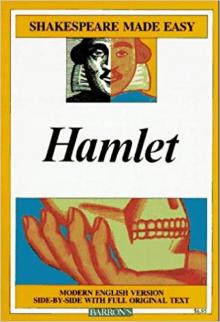 Hamlet
Hamlet Richard II (Folger Shakespeare Library)
Richard II (Folger Shakespeare Library) Macbeth
Macbeth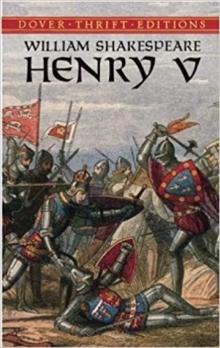 Henry V
Henry V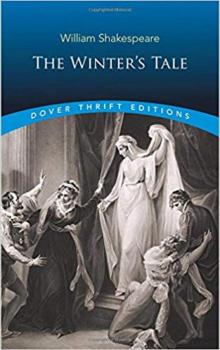 The Winter's Tale
The Winter's Tale The Taming of the Shrew
The Taming of the Shrew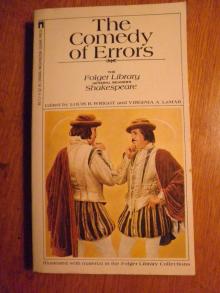 The Comedy of Errors
The Comedy of Errors King Lear (Folger Shakespeare Library)
King Lear (Folger Shakespeare Library)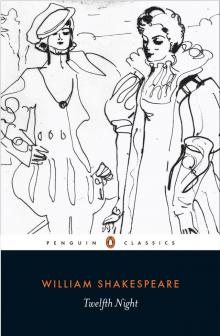 Twelfth Night
Twelfth Night Othello
Othello The Two Gentlemen of Verona
The Two Gentlemen of Verona Henry IV, Part 1 (Folger Shakespeare Library)
Henry IV, Part 1 (Folger Shakespeare Library) King John/Henry VIII (Signet Classics)
King John/Henry VIII (Signet Classics)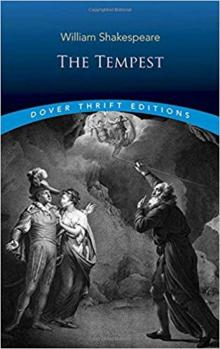 The Tempest
The Tempest Titus Andronicus (Dover Publications)
Titus Andronicus (Dover Publications)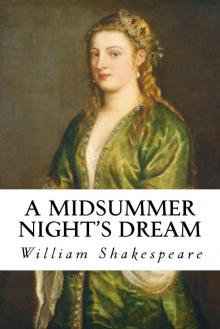 A Midsummer Night's Dream
A Midsummer Night's Dream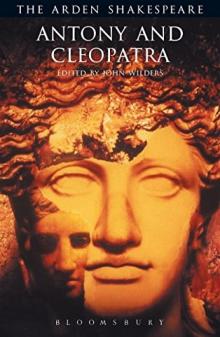 Antony and Cleopatra (Arden Shakespeare: Third Series)
Antony and Cleopatra (Arden Shakespeare: Third Series)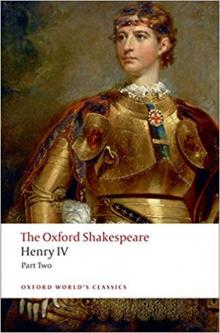 The Oxford Shakespeare: Henry IV, Part 2 (Oxford World's Classics)
The Oxford Shakespeare: Henry IV, Part 2 (Oxford World's Classics)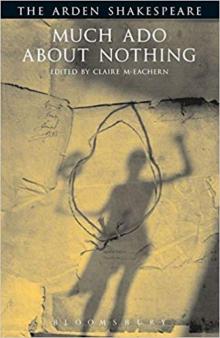 Much Ado About Nothing (Arden Shakespeare: Third Series)
Much Ado About Nothing (Arden Shakespeare: Third Series) All's Well That Ends Well
All's Well That Ends Well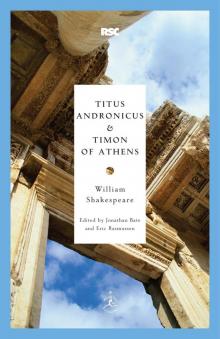 Titus Andronicus & Timon of Athens
Titus Andronicus & Timon of Athens Richard III (Modern Library Classics)
Richard III (Modern Library Classics) Coriolanus
Coriolanus srsly Hamlet (OMG Shakespeare)
srsly Hamlet (OMG Shakespeare) The Merchant of Venice
The Merchant of Venice Richard III
Richard III Richard II
Richard II Pericles
Pericles As You Like It
As You Like It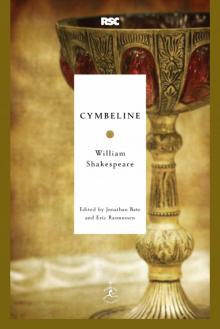 Cymbeline
Cymbeline Alls Wel that ends Well
Alls Wel that ends Well YOLO Juliet
YOLO Juliet A Midsummer Night #nofilter
A Midsummer Night #nofilter Love's Labour's Lost
Love's Labour's Lost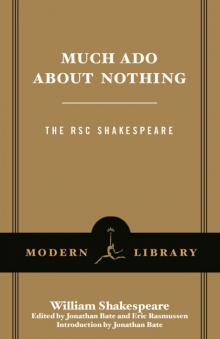 Much Ado About Nothing
Much Ado About Nothing Romeo & Juliet & Vampires
Romeo & Juliet & Vampires The Arden Shakespeare Complete Works
The Arden Shakespeare Complete Works Julius Caesar
Julius Caesar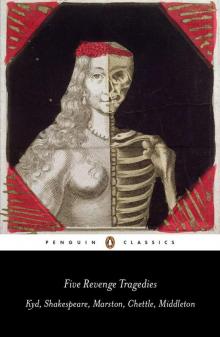 Five Revenge Tragedies: The Spanish Tragedy, Hamlet, Antonio's Revenge, The Tragedy of Hoffman, The Revenger's Tragedy (Penguin Classics)
Five Revenge Tragedies: The Spanish Tragedy, Hamlet, Antonio's Revenge, The Tragedy of Hoffman, The Revenger's Tragedy (Penguin Classics) Macbeth #killingit
Macbeth #killingit The Oxford Shakespeare: The Complete Works
The Oxford Shakespeare: The Complete Works Hamlet, Prince of Denmark (Collins edition)
Hamlet, Prince of Denmark (Collins edition) King John & Henry VIII
King John & Henry VIII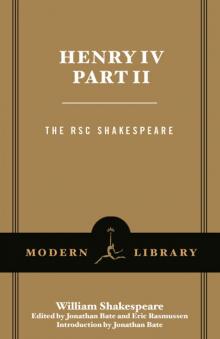 Henry IV, Part 2
Henry IV, Part 2 Complete Plays, The
Complete Plays, The The Sonnets and Other Poems
The Sonnets and Other Poems Antony and Cleopatra
Antony and Cleopatra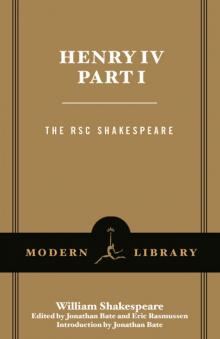 Henry IV, Part 1
Henry IV, Part 1 Is This a Dagger Which I See Before Me?
Is This a Dagger Which I See Before Me? The Complete Works of William Shakespeare In Plain and Simple English (Translated)
The Complete Works of William Shakespeare In Plain and Simple English (Translated) The Sonnets
The Sonnets